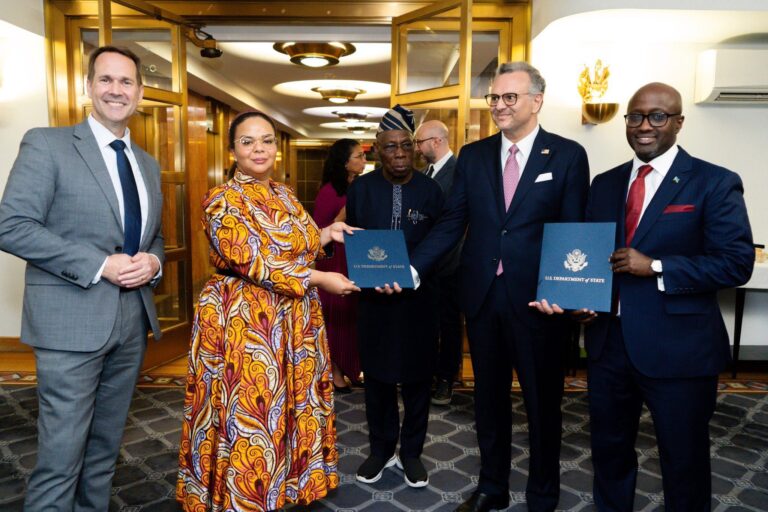
The United States has welcomed draft proposals from Rwanda and the Democratic Republic of the Congo (DRC), describing them as a critical step toward a peace agreement between the two neighboring countries.
Massad Boulos, senior advisor to the U.S. president on African affairs, confirmed that both governments submitted preliminary documents outlining their expectations for a peace deal. The development follows the April 25 signing of a foundational principles agreement in New York aimed at restoring peace and stability in the Great Lakes region.
“I have received the draft peace proposals from Rwanda and the DRC,” Boulos said Sunday. “This is a key milestone toward implementing the principles agreement, and I’m encouraged by both countries’ continued commitment to peace.”
Rwandan Foreign Minister Olivier Nduhungirehe and his DRC counterpart, Thérèse Kayikwamba Wagner, met with Boulos last week in Gabon during the inauguration of President Brice Clotaire Oligui Nguema. Nduhungirehe later clarified that, despite media reports, formal peace negotiations had not yet begun, and the newly submitted drafts represent the groundwork for those talks.
He said both sides are still working to align their positions before launching formal negotiations.
Rwanda and the DRC have repeatedly expressed their commitment to addressing the root causes of insecurity in eastern Congo, a region plagued by armed groups and cross-border violence. The area is home to more than 120 armed groups, including the Democratic Forces for the Liberation of Rwanda (FDLR), a militia formed by individuals responsible for Rwanda’s 1994 genocide.
Rwanda has accused the FDLR of carrying out over 20 cross-border attacks since 2018. In one of the most recent incidents, artillery shells struck Rubavu District in January, killing 16 civilians and injuring more than 160 others.
Kigali alleges that the FDLR continues to operate with impunity in eastern DRC and maintain ties with the Congolese army — a charge Kinshasa has denied. Rwanda says the group remains a national security threat.
On May 5, Boulos confirmed that the U.S. had received the draft proposals and said Washington remains committed to supporting the peace process.
“This is a significant step toward honoring the commitments made in April,” he said. “We expect continued momentum toward a final peace agreement.”
During the April 25 signing in New York, both countries pledged to submit detailed proposals by May 2. The U.S., represented by Secretary of State Marco Rubio, facilitated the agreement and set the deadline for the drafts to allow for review and mediation.
On April 27, U.S. President Donald Trump expressed optimism about the process.
“We have good news out of Rwanda and the DRC,” Trump said. “I think we’re going to see peace between Rwanda, Congo, and a few other nearby countries. It’s a positive step, and we’re hopeful it will yield results.”
Presidents Paul Kagame of Rwanda and Félix Tshisekedi of the DRC are expected to sign the final peace agreement in Washington, D.C., in June. A separate accord on regional development cooperation is also expected to be signed during the ceremony.
